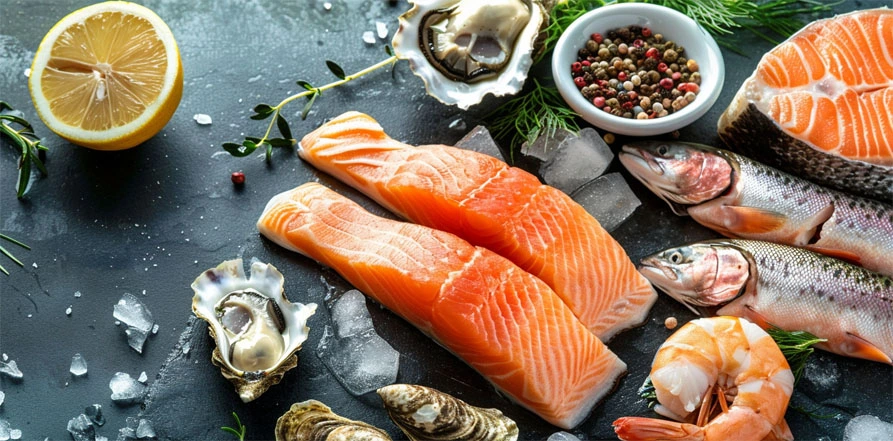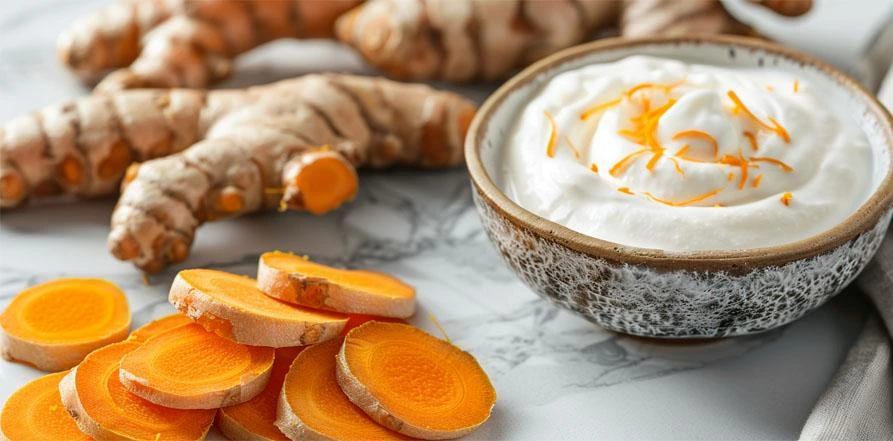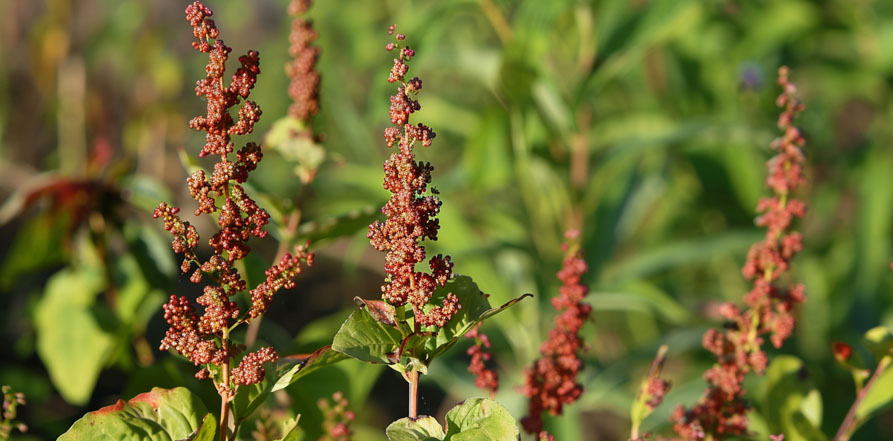The straightforward answer to this question is “NO.” Statins are not benign, health protective medications, as the pharmaceutical companies would have you believe. If the decision were left up to the makers of Lipitor, Zocor, Crestor, Pravachol, and other cholesterol-lowering drugs, statins would be prescribed for every American (including children), handed out with fast-food meals, and added to our water supply. I’m not exaggerating—these absurd measures have actually been suggested at one time or another. The pharmaceutical industry, mainstream medicine, and even many governmental agencies are pushing the belief that lowering cholesterol (most often with statins) is the best way to protect against heart disease.
As a result, statins have become wildly popular drugs, so much so that Lipitor is the world’s all-time biggest selling prescription medication. An astonishing one out of every four Americans over the age of 45 currently takes a statin drug.
It’s time to dispel some popular myths regarding cholesterol, heart disease, and statin drugs.
MYTH 1: “High cholesterol (and LDL) is the number-one cause of heart disease in this country.”
Dead wrong. High cholesterol is among the risk factors for heart disease, but it is not the primary cause. The most frequently occurring risk factor is high CRP (indicating inflammation), low HDL, and small LDL particles, which often occur simultaneously. For every 100 people with heart disease, 60-70 will have low HDL and small LDL particles, but fewer than 30 will have high LDL. If you’re wondering why this information isn’t more widely publicized, it’s because there’s not yet a profitable drug for treating these risk factors.
According to generally accepted guidelines, HDL below 40 mg/dL for men and less than 45 mg/dL for women is considered low. But in fact, a level of less than 60 mg/dL should be considered significant. HDL is already a standard measure in everyday cholesterol panels. Small LDL particles and CRP need to be measured specifically and are not typically included in testing. While doctors focus on statin therapy for LDL, the most prevalent risk factors for heart disease are left untreated.
MYTH 2: “If I take a statin drug, I won’t have a heart attack.”
This is blatantly untrue. The truth is that lowering cholesterol may reduce the occurrence of heart attacks, but it does not eliminate the risk. Because heart attacks still occur in people with low cholesterol levels, we must consider that there are other risk factors for heart disease besides cholesterol, such as the aforementioned small LDL particles, low HDL, and lipoprotein(a), homocysteine, and high insulin levels.
There’s no question that statin drugs do lower LDL cholesterol levels and even C-reactive protein (a measure of inflammation), which is perhaps the most positive effect. But it’s important to understand that they do this by compromising the ability of the liver to make all forms of cholesterol, including HDL (the “good” cholesterol) and the important hormones that the body manufactures from cholesterol. The result is that statins interfere with the body’s natural healthy physiology, causing problems including memory loss, insulin resistance, diabetes, and sexual dysfunction. Statins lower testosterone levels, and research shows that low testosterone in older men is linked to heart disease and an overall increase in mortality. The pharmaceutical industry, of course, has come up with an answer to that problem—various forms of testosterone, used either as a topical gel or injectable. Once again, drug companies benefit at the expense of the well being of the general public.
Recent studies have even shown that using statins increases calcified plaque in the arteries, which is now recognized as a strong predictor of coronary artery disease. In a study published in the journal Atherosclerosis, researchers at the Cedars-Sinai Heart Institute found that of 6673 subjects with no known coronary heart disease, those taking statins had a higher incidence of arterial calcification and coronary artery disease. Another recent study published in Diabetes Care found that people with diabetes and advanced atherosclerosis suffered increased artery calcification if they were taking statins.
It’s time that we seriously re-evaluate and challenge the accepted status quo regarding statins. Although many people believe that the lower your cholesterol, the healthier you are, nothing could be further from the truth. If your cholesterol is too low, you have an increased risk of mood disorders, depression, stroke, and even cancer.
One of the well-known side effects of statin drugs is myopathy (muscle weakness). But remember, the heart is a muscle that never stops working. Although many people don’t realize that statin drugs can negatively affect the heart, statin-related side effects, including statin induced cardiomyopathy, are far too common. Fortunately, these effects are reversible when statins are discontinued, and supplemental CoQ10 and other mitochondrial-enhancing nutrients and botanicals are given.
Instead of statins, a much safer and more effective approach to achieving healthy cholesterol levels are a combination of diet, exercise, stress management and an appropriate nutritional and botanical supplement regimen. Normalizing cholesterol without drugs is one of the easiest things to do using nutritional and botanical medicine. Research supports this view: In a study evaluating the effect of statin drugs versus lifestyle changes, researchers found that while the statin group did lower their bad cholesterol levels significantly more than the group focused on lifestyle changes, both groups had the same rates of death and heart disease. Another study confirmed that a healthy diet, low in fats, refined fats, starches and sugars, was just as effective as a statin drug in lowering LDL cholesterol.
It’s important to take our focus off of lowering cholesterol, and instead to understand that the primary risk factors for coronary artery disease are chronic inflammation and the oxidation of low-density lipoprotein (LDL) cholesterol. This is caused by a lack of antioxidant-rich foods, herbs, and nutrients and/or a large intake of foods and chemicals that contain damaging free radicals (including trans fats and refined vegetable oils found in most fried and processed foods). Chronic inflammation also contributes to oxidative stress and an increase in coronary artery disease. When LDL cholesterol oxidizes, it promotes atherosclerosis, particularly in the presence of stressors like cortisol and insulin, which together increase oxidation and inflammation.
Multiple risk markers for atherosclerosis have a pro-inflammatory component, which stimulates the release of a number of active molecules such as inflammatory mediators, nitric oxide, and immune cells in response to injury. Nitric oxide plays a pivotal role in preventing the progression of atherosclerosis through its ability to induce vasodilation, suppress vascular smooth muscle proliferation, and reduce vascular lesion formation. Nutrients such as arginine, antioxidants (OPCs, vitamins C and E, lipoic acid, selenium, glutathione), and enzyme cofactors (vitamins B2, B3, B6, B12, folate, zinc) help to elevate nitric oxide levels and may play an important role in the management of cardiovascular disease. Other dietary components such as DHA/EPA from fish oil, tocotrienols, vitamins B6 and B12, and quercetin contribute further to mitigating the inflammatory process.
Because cholesterol has unjustly received most of the blame for coronary artery disease, there is much confusion and many misconceptions about what foods are beneficial versus what foods are detrimental. Foods like eggs and butter are thought to be major contributors to heart disease because of their cholesterol content, but in reality, studies have shown that eggs do not increase plasma blood cholesterol. Eggs from free-range chickens that have eaten natural organic grains contain high amounts of lecithin, a phospholipid that emulsifies other fats and improves the liver’s ability to break down and absorb fat properly. Butter, although a saturated fat, does not oxidize in the body nor generate free radical damage, as do hydrogenated polyunsaturated fats.
However, consuming rancid fats, refined sugars, and refined starches causes the oxidation of lipids, including cholesterol, and elevates insulin levels, leading to atherosclerosis and damaging the liver, spleen and other organs. Replacing healthful fats with refined sugars and starches can cause hyperinsulinism, adrenal exhaustion, and obesity. Eating a diet rich in refined sugars and refined starch has also been shown to decrease beneficial HDL cholesterol.
My prescription for cardiovascular health is simple: I recommend eating a Mediterranean diet, rich in vegetables, fruits, legumes, whole grains, lean proteins, eggs, and healthful fats such as extra virgin olive oil and butter. If you eat healthfully, exercise daily, and manage your stress appropriately, there’s no reason to ever consider taking statin drugs. In addition, I strongly recommend herbal and nutritional supplements for helping to regulate lipid levels.
I have recently reformulated Cho-Less, the flagship Natura formula for lipid regulation. The guggul extract in Cho-Less now contains 7.5 percent guggulsterones, a three-time increase over the previous extract.
Guggul (Commiphora mukul) is derived from the mukul myrrh tree that grows in India. Guggul extract effectively lowers harmful VLDL and LDL cholesterol and triglycerides while at the same time elevating beneficial HDL cholesterol, thus protecting against heart disease caused by atherosclerosis. A group of compounds called guggulsterones are responsible for the lipid-lowering action of the extracts; Z-guggulsterone and E-guggulsterone are believed to be the most active guggulsterone-components.
Guggul appears to normalize cholesterol through two distinctive mechanisms: 1) by improving the liver’s ability to process, metabolize and excrete cholesterol, in particular LDL cholesterol; and 2) by improving thyroid function by increasing T-4 to T-3 conversion. Studies show that guggul extract decreases LDL and triglycerides by about 12%. Guggul extract is most effective when combined with niacin, plant sterols, red yeast and other lipid lowering agents. Guggul has also been shown to decrease platelet adhesiveness, and to increase fibrinolytic activity. It has demonstrated not only an ability to prevent atherosclerosis, but also has promoted the regression of pre-existing atherosclerotic plague in animal studies. 1-6
Six randomized clinical trials of guggul, involving 388 patients with different diagnoses, were identified. 7-12 Five were conducted in India and one in the United States; four were placebo-controlled; and one compared guggul with two reference compounds. The results suggest reductions in total serum cholesterol from 10% to 27% when compared with baseline level.

High-density lipoprotein (HDL) cholesterol levels were measured in three of the studies. 7-9 A significant increase was seen after 8 weeks of treatment in one study; 9 in the others, no significant differences were observed. 7,8 A statistically significant decrease in lipid peroxide levels was reported in one study, with no corresponding change in the placebo-treated group. 7
In addition to improving blood lipid profiles, guggul has confirmed anti-inflammatory activity, and is traditionally used for arthritis. Guggul also aids in weight loss and may be effective for treating cystic acne. Because guggulsterones have demonstrated an ability to promote fat loss, 10 they should be part of any weight-loss program.
I highly recommend guggul as part of a cholesterol-normalizing program. In one recent study, it was found that guggul and its cholesterol-lowering component, guggulsterone, effectively inhibited LDL oxidation. 12Equally important for cardiovascular health, guggelsterone possesses anti-diabetic and lipid-lowering effects in diabetic rats feed a high fat diet.13
-
- Wang X, Greilberger J, Ledinski G, Kager G, Paigen B, Jurgens G. The hypolipidemic natural product Commiphora mukul and its component guggulsterone inhibit oxidative modification of LDL. Atherosclerosis. 2004 Feb;172(2):239-46.
- Stayrook KR, Bramlett KS, Savkur RS, Ficorilli J, Cook T, Christe ME, Michael LF, Burris TP. Regulation of carbohydrate metabolism by the farnesoid X receptor. Endocrinology. 2005 Mar;146(3):984-91. Epub 2004 Nov 24.
- Urizar NL, Moore DD. GUGULIPID: a natural cholesterol-lowering agent. Annu Rev Nutr. 2003;23:303-13. Epub 2003 Feb 26.
- Urizar NL, Liverman AB, Dodds DT, Silva FV, Ordentlich P, Yan Y, Gonzalez FJ, Heyman RA, Mangelsdorf DJ, Moore DD. A natural product that lowers cholesterol as an antagonist ligand for FXR. Science. 2002 May 31;296(5573):1703-6. Epub 2002 May 2.
- Singh V, Kaul S, Chander R, Kapoor NK. Stimulation of low-density lipoprotein receptor activity in liver membrane of guggulsterone treated rats. Pharmacol Res. 1990 Jan-Feb;22(1):37-44.
- Verna SK and Bordia A, Effect of Commiphora mukul resin (gumguggul) in patients of hyperlipidemia with special reference to HDL. Ind. J Med. Res. 87: 356-60,1988
- Singh RB, Niaz MA, Ghosh S. Hypolipidemic and antioxidant effects of Commiphora mukul as an adjunct to dietary therapy in patients with hypercholesterolemia. Cardiovasc Drugs Ther 1994;8:659–664.
- Szapary PO, Wolfe ML, Bloedon LT, Fair MB, Berezich DJ, Cirigliano AJ, Rader DJ. A double blind, randomised, placebo controlled clinical trial of standardized guggul extract in patients with hypercholesterolemia. Complement Ther Med 2002;10:–112.
- Malhotra SC, Ahuja MMS. Comparative hypolipidaemic effectiveness of gum guggulu (Commiphora mukul) fraction ‘A’, ethyl-P-Chlorophenoxyisobutyrate and Ciba-13437-Su. Indian J Med Res 1971;59:1621–1632.
- Kuppurajan K, Rajagopalan SS, Koteswara Rao T, Sitaraman R. Effect of guggulu (Commiphora mukul–Engl) on serum, lipids in obese, hypercholesterolemic and hyperlipemic cases. J Assoc Physicians India 1978;26:367–373.
- Bordia A, Chuttani SK. Effect of gum guggulu on fibrinolysis and platelet adhesiveness in coronary heart disease. Indian J Med Res 1979;70:992–996.
- Wang X, Greilberger J, Ledinski G, Kager G, Paigen B, Jurgens G. The hypolipidemic natural product Commiphora mukul and its component guggulsterone inhibit oxidative modification of LDL. Atherosclerosis. 2004 Feb;172(2):239-46.
- Sharma B, Salunke R, Srivastava S, Majumder C, Roy P. Effects of guggulsterone isolated from Commiphora mukul in high fat diet induced diabetic rats, Food Chem Toxicol. 2009 Oct;47(10):2631-9. Epub 2009 Jul 25.
Basic Program for Lipid Modulation and Overall Cardiovascular health:
- Cho-Less (4 caps daily)
- Beyond Essential Fats (1 tsp. or 6 caps daily)
- CV-Res-Q (2 caps daily)
- Cardio Tonic-BP (2 caps daily)
- Botanical Treasures (4 caps or ½ tsp.)
- Night Gain (4 caps)
- IG Sensitizer (3 caps)










